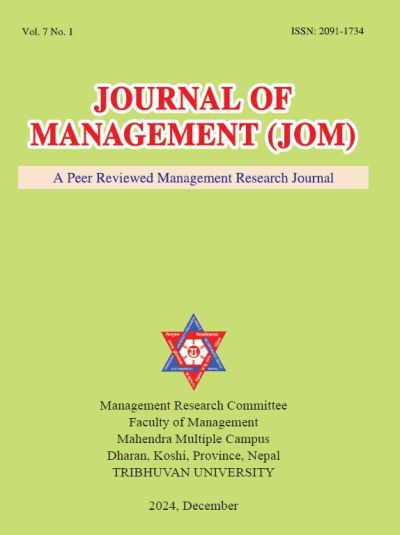Factors Influencing Consumer Behaviour Towards Organic Food in Nepal
DOI:
https://doi.org/10.3126/jom.v7i1.73552Keywords:
Organic food, consumer behaviour, health consciousness, availability, price perceptionAbstract
This study examines consumer behaviour regarding organic food in Nepal, focusing on three key factors: health consciousness, availability, and price perception. This study attempts to identify the determinants of consumer attitude, purchase intention, and actual buying behaviour that will help address the challenges faced by Nepal's emerging organic food market. A quantitative approach was used to prepare a structured questionnaire distributed to 650 participants, and 500 valid responses were analysed. The data were collected using both online and offline methods. The results showed that health consciousness significantly influences attitudes and purchase intentions because consumers perceive organic foods to be healthier, non-contaminated, and without harmful chemicals. Availability has emerged as a vital factor because of the limited accessibility of organic products and the low diffusion results. As perceived, negative purchase intentions consider consumers’ attitudes toward the expensiveness of organic products regarding perceived benefits. High prices and restricted availability are considered reasons for the difference between purchase intention and actual buying behaviour. Research has highlighted that access to and affordability of organic foods in Nepal must be strategized to improve distribution channels, educate consumers, and adjust prices to permit wider adoption.
Downloads
Downloads
Published
How to Cite
Issue
Section
License
© Management, Research Department, Faculty of Management, Mahendra Multiple Campus, Dharan, Nepal

